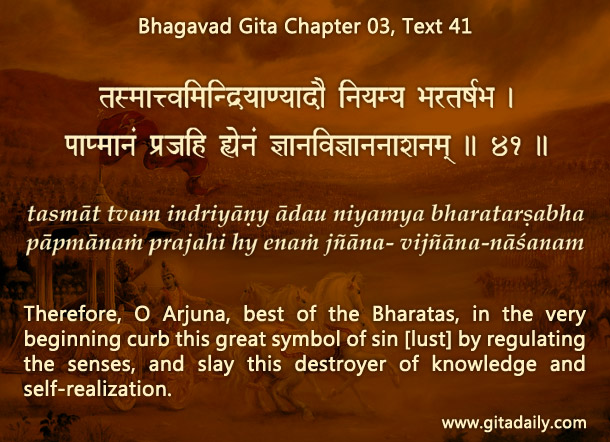When we use something powerful like electricity, warning systems such as fuses alert us if electric power starts rising to dangerous levels.
Like electricity, desire is an essential power. How can we know when it starts becoming dangerous? When the desire for pleasure becomes our sole inner driver.
We humans are innately both pleasure-seekers and meaning-seekers. Driven by the desire for pleasure, our mind asks, “How can I enjoy this?” Driven by the search for meaning, our intelligence asks, “What does this mean?” Together, they drive us toward things that are both joyful and meaningful. But when the desire for pleasure becomes dominant, it subjects us to meaningless indulgences that leave us feeling empty. If we are tickled constantly, the meaningless titillation soon becomes annoying.
Consider eating, for example. It is enjoyable when the food is tasty. It is meaningful when the food nourishes our body. It can also be spiritually meaningful when it reminds us that something benevolent beyond us is providing our necessities. But when we eat only for pleasure, food becomes just stuff that goes into our body and comes out foul-smelling. Eating becomes destructive: we eat too much for our own good health, and we leave too little for our malnourished fellow humans.
Similarly, when sexual pleasure is sought as an end in itself, it becomes divorced from the things that make sexuality meaningful: a deep bonding and a procreative purpose. Such indulgence becomes just hormones getting activated and fluids flowing out of or into our bodily apertures. Even if it titillates temporarily, such indulgence leaves us feeling lonely and others feeling objectified.
Pertinently, the Bhagavad-gita (03.41) warns that disproportionate desire destroys knowledge and meaning.
One-sentence summary:
Desire becomes dangerous when it drives out the question, “What does this mean?” and drives us solely with the question, “How can this be enjoyed?”
Think it over:
- What are the two things that drive us humans?
- Have you ever experienced the emptiness of meaningless pleasure?
- How can you seek your habitual pleasures in a way that enhances, not erodes, meaning?
***
03.41: Therefore, O Arjuna, best of the Bharatas, in the very beginning curb this great symbol of sin [lust] by regulating the senses, and slay this destroyer of knowledge and self-realization.
Explanation of article:
Podcast


Leave A Comment